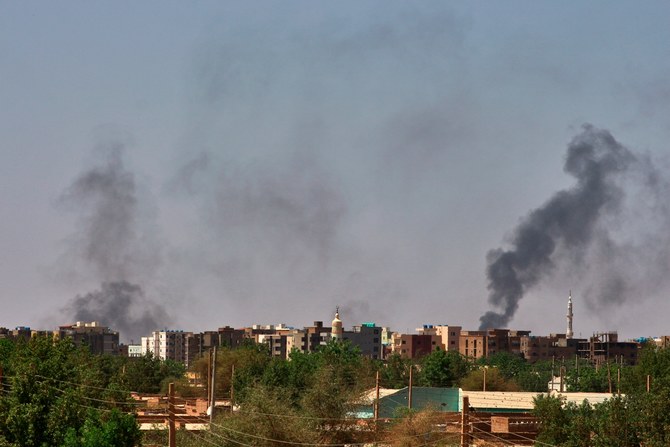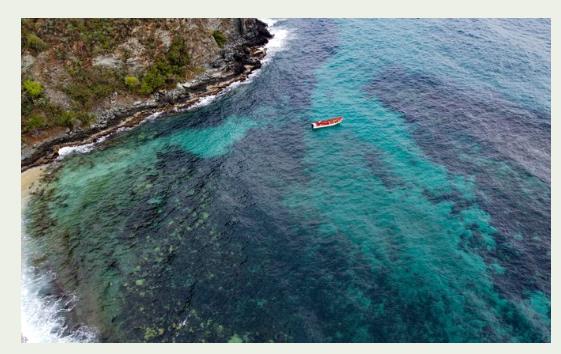
Next month will see the 30th anniversary of the fall of the Berlin Wall — a moment that rang in three turbulent decades for Russia. The Soviet Union was dissolved and several Central Asian and Baltic states achieved independence, while it also prompted the birth of the Russian Federation.
These have been stormy years in Moscow, as the presidency went from Mikhail Gorbachev to Boris Yeltsin to Vladimir Putin. The last two decades have been forged by the strong hands of Putin. He had his work cut out for him, because the country he inherited from Yeltsin had reached an economic low. Spirits were also low and oligarchs dominated. Putin has ruled with an iron fist and restored national pride.
The West looked at the goings-on in Russia with increasing skepticism. But that was a two-way street. While the West bemoaned the lack of democratic values, Russia eyed NATO with an increasing sense of unease.
After the Warsaw Pact was dissolved in the summer of 1991, there was an implicit understanding that NATO would not expand eastward. Alas, that did not happen. NATO counted 16 members in 1989, but it has now swollen to 29 and all of the new members were either part of the former Soviet Union or members of the Warsaw Pact. Another four countries officially recognized as aspiring members — Bosnia and Herzegovina, Georgia, North Macedonia and Ukraine — all fall in the same category.
It would be an understatement to call the enlargement of NATO a thorn in Moscow’s side. Putin has taken countermeasures over what he sees as the encirclement of his country by NATO. Defense spending and research are up — markedly so after US President Donald Trump canceled the Intermediate-Range Nuclear Forces Treaty. We have entered the age of a new full-blown (nuclear) arms race.
In 2001, Russia teamed up with China and four Central Asian republics to form the Shanghai Cooperation Organisation (SCO), whose remit spans the full bandwidth from economic to military cooperation. Its military maneuvers can increasingly be seen as a counterweight to NATO.
Russia’s divisions with the West go well beyond the defense space. After the incursion into Ukraine and subsequent annexation of the Crimean Peninsula, Russia was kicked out of the then-G8 mechanism, where the major Organisation for Economic Co-operation and Development economies conferred about the state of the global economy. At the same time, the West also imposed severe economic sanctions.
After the trauma of the dissolution of the Soviet Union, it took time for Russia to find its feet again. The West too often underestimated the country’s pride and resilience. It did not resonate well with Moscow and the Russian people when President Barack Obama said the country was “a regional power that is threatening (Ukraine), not out of strength but out of weakness.” Whichever political side Russians are on, they have one thing in common: Pride in their country and its long history, from Ivan the Terrible to Catherine the Great and today.
We are now seeing an increasingly confident Russia on the international stage. Russian diplomats have been able to gain ground against the backdrop of a US foreign policy that seems to be abandoning the multilateral architecture that it helped build in the aftermath of the Second World War.
Nowhere is that more apparent than in the Middle East. Russia had lost all of its allies in the region, as well as access to Mediterranean ports, but it used the civil war in Syria with skill to further its own strategic interests. By backing the Assad regime, it has managed to get a naval base in Tartus, an airbase in Khmeimim and many other forward bases. The meetings between Putin, Iran’s Hassan Rouhani and Turkey’s Recep Tayyip Erdogan have become defining gatherings, where Putin and Rouhani in particular are able to assert themselves over Syria.
It was also the Russian president who visited European capitals in the summer of 2017 to discuss how an eventual reconstruction of Syria could be financed. If anything, the withdrawal of US troops from Syria will only strengthen Russia’s hand. For sure, they will have to deal with the fallout, such as a potential resurgence of Daesh, but we can count on Russia filling the void left by the Americans.
Interestingly, while Russia sided with Iran on Syria, its government was able to forge a strong relationship with Saudi Arabia on other matters. The pre-eminent example is OPEC+, where Russia leads 10 oil-producing nations that have built an alliance with OPEC to ensure oil markets are adequately supplied. While Russia’s contribution is minor in terms of quantity, the strategic might of Russian cooperation is considerable. There is also Russo-Saudi cooperation on other economic and diplomatic fronts. Indeed, Russia is one of the few countries that works with both sides of the Saudi-Iran schism in the Middle East, seemingly without offending either.
The West may be skeptical of Russia’s attitude toward democracy and despise some of its foreign policy choices, particularly in Ukraine and Syria, and it may also be wary of the new arms race, but Russia has played its diplomatic cards well. President Putin is strong and has a vision. He is supported by one of the world’s most skillful diplomats, as Foreign Minister Sergey Lavrov can be compared to Charles Maurice de Talleyrand in terms of longevity and statecraft.
Wherever one stands on the matter of Russia, it would be unwise to underestimate its determination, diplomatic skill and global reach.
Cornelia Meyer is a business consultant, macroeconomist and energy expert. Twitter: @MeyerResources











